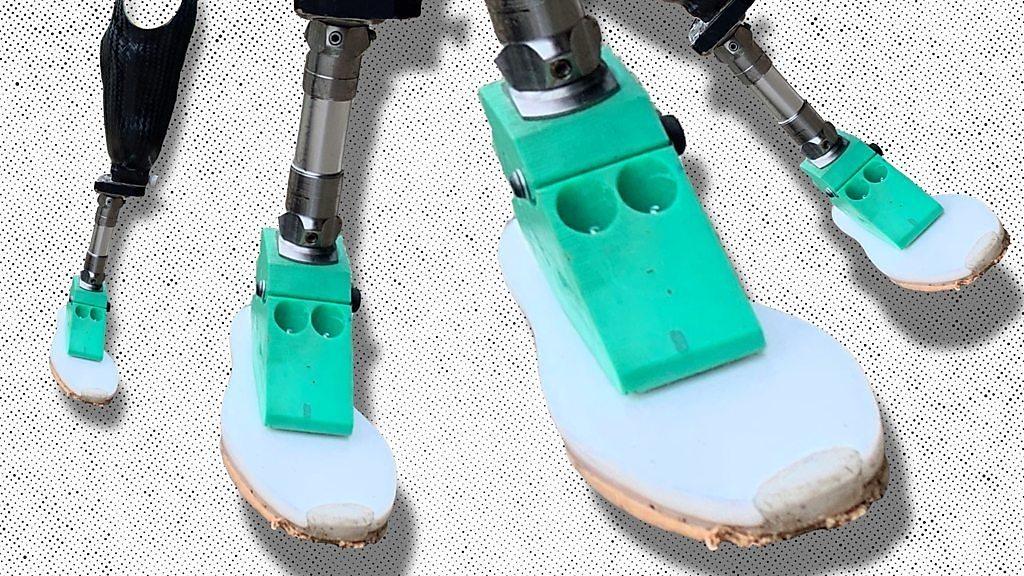Plastic bottles turned into 'cheap' prosthetics
- Published
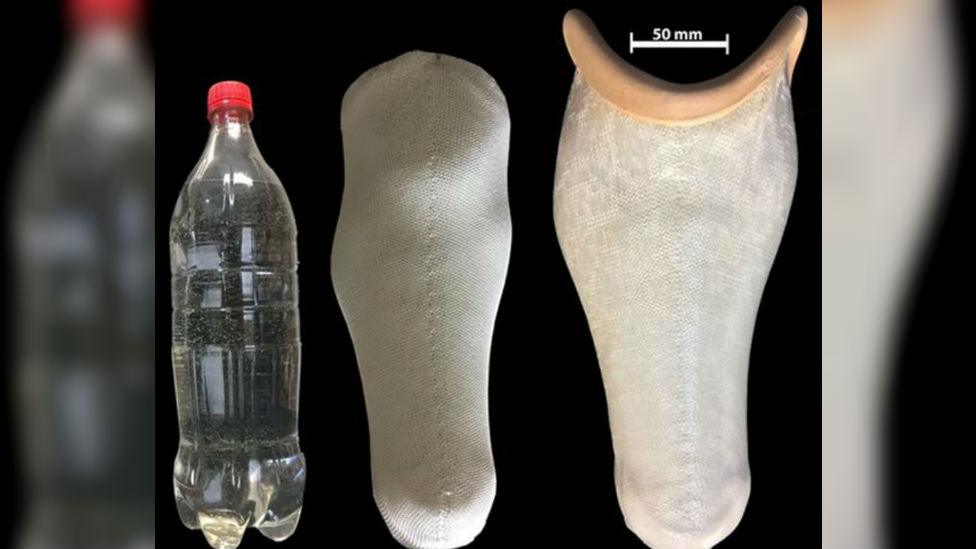
Academics at De Montfort University made prosthetic sockets using recycled plastic bottles
Plastic bottles have been turned into the sockets for prosthetic limbs by university experts.
The engineer behind the technique hopes it could reduce the cost of the sockets, which join artificial limbs to the body, from £5,000 to £10.
De Montfort University engineers ground plastic bottles down to makes polyester yarns, which were heated and moulded to create the sockets.
The sockets were tested at a rehabilitation charity in India.
The average cost of producing a socket is £5,000, but the university believes using recycled material could reduce the cost to as little as £10 and help tackle plastic pollution.
Dr Karthikeyan Kandan said two amputees who tried out the products in Jaipur were "really impressed".
He said: "The aim of this project was to identify cheaper materials that we could use to help these people."
The yarns made from the ground-down bottles are heated to form a solid, lightweight material which is moulded into prosthetic sockets.
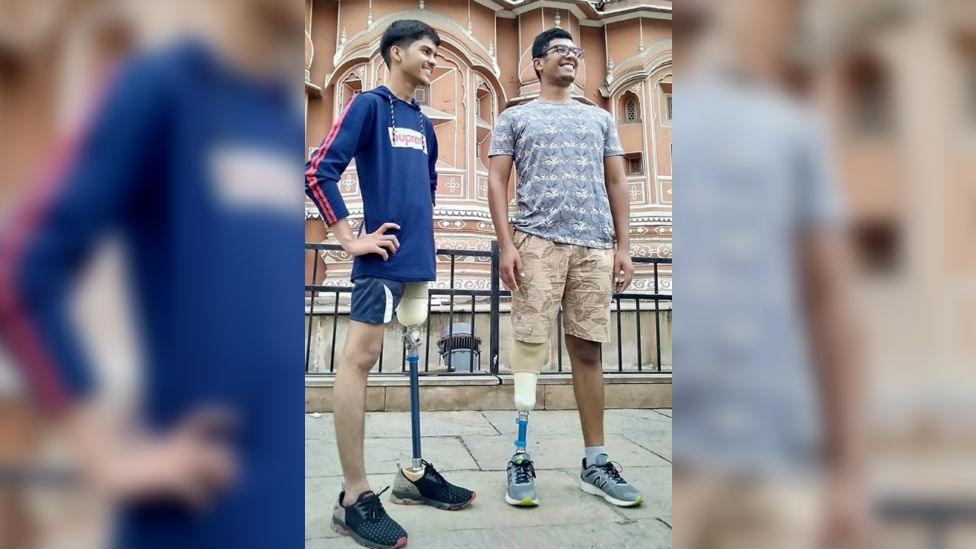
The technique was used to produce prosthetic limb sockets for two amputees in India
The prosthetic sockets have to be tailor-made for each user.
Two were made in Leicester and taken to India to trial on two patients from Bhagwan Mahaveer Viklang Sahayata Samiti - an organisation which helps rehabilitate disabled people.
"Both patients were really impressed," Dr Kandan said.
"Upcycling of recycled plastics and offering affordable prosthesis are two major global issues that we need to tackle."

Follow BBC East Midlands on Facebook, external, Twitter, external, or Instagram, external. Send your story ideas to eastmidsnews@bbc.co.uk, external.
- Published3 August 2019
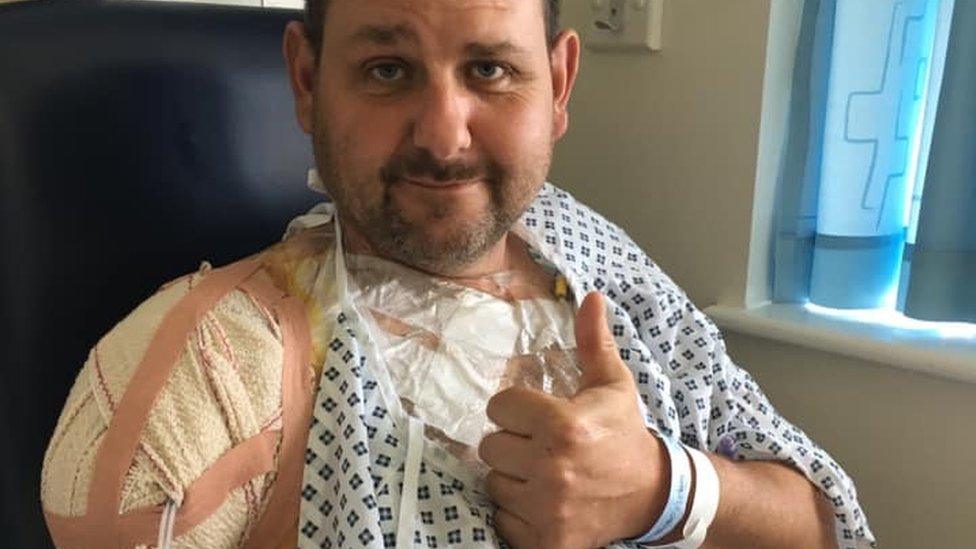
- Published2 August 2019
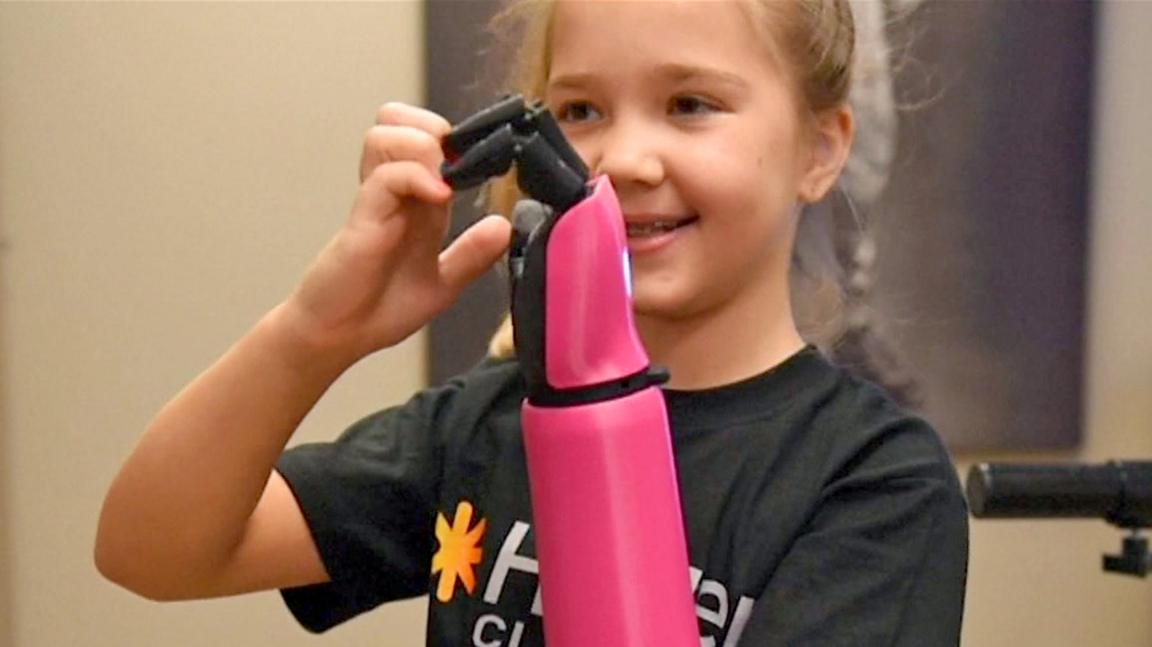
- Published28 June 2019
